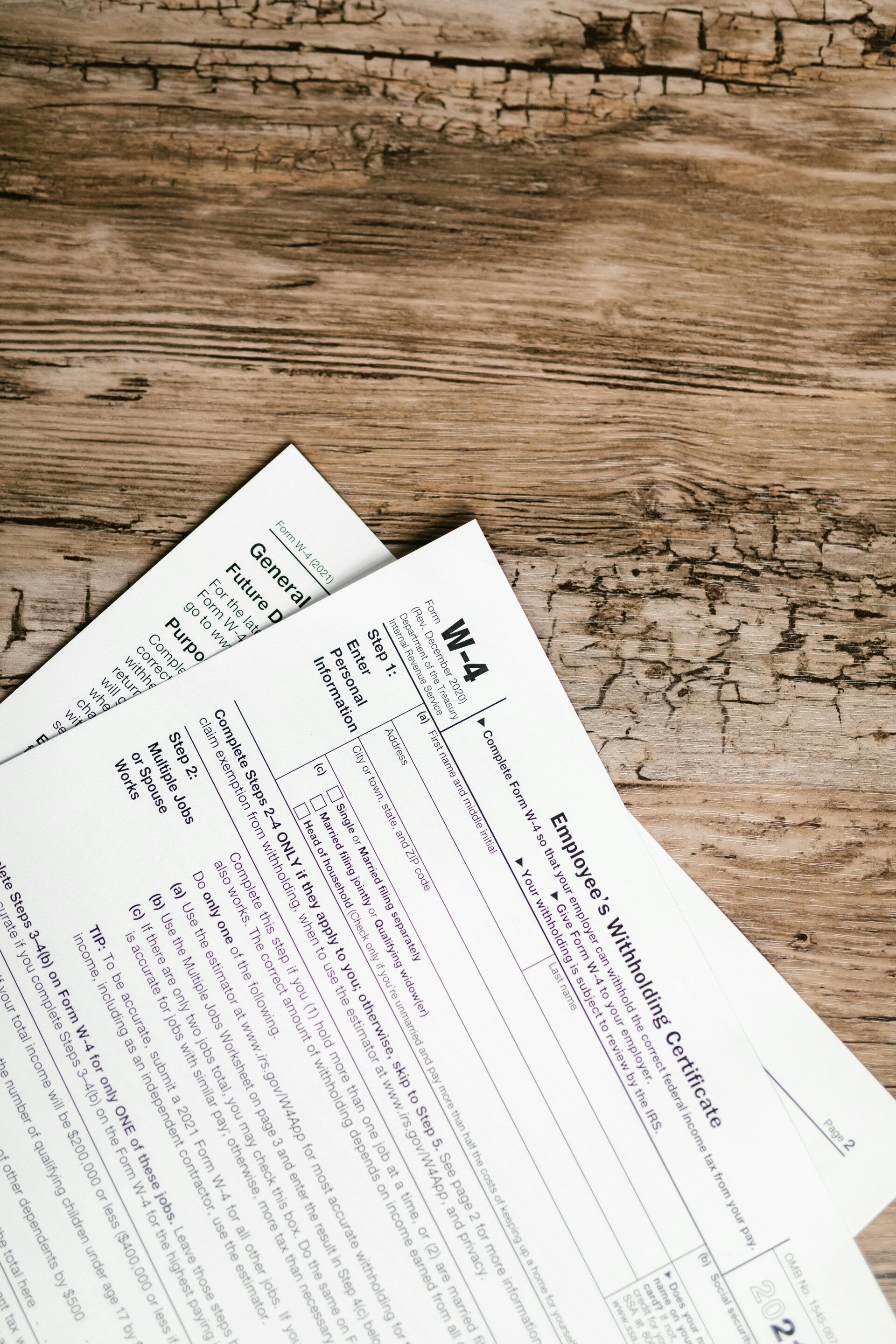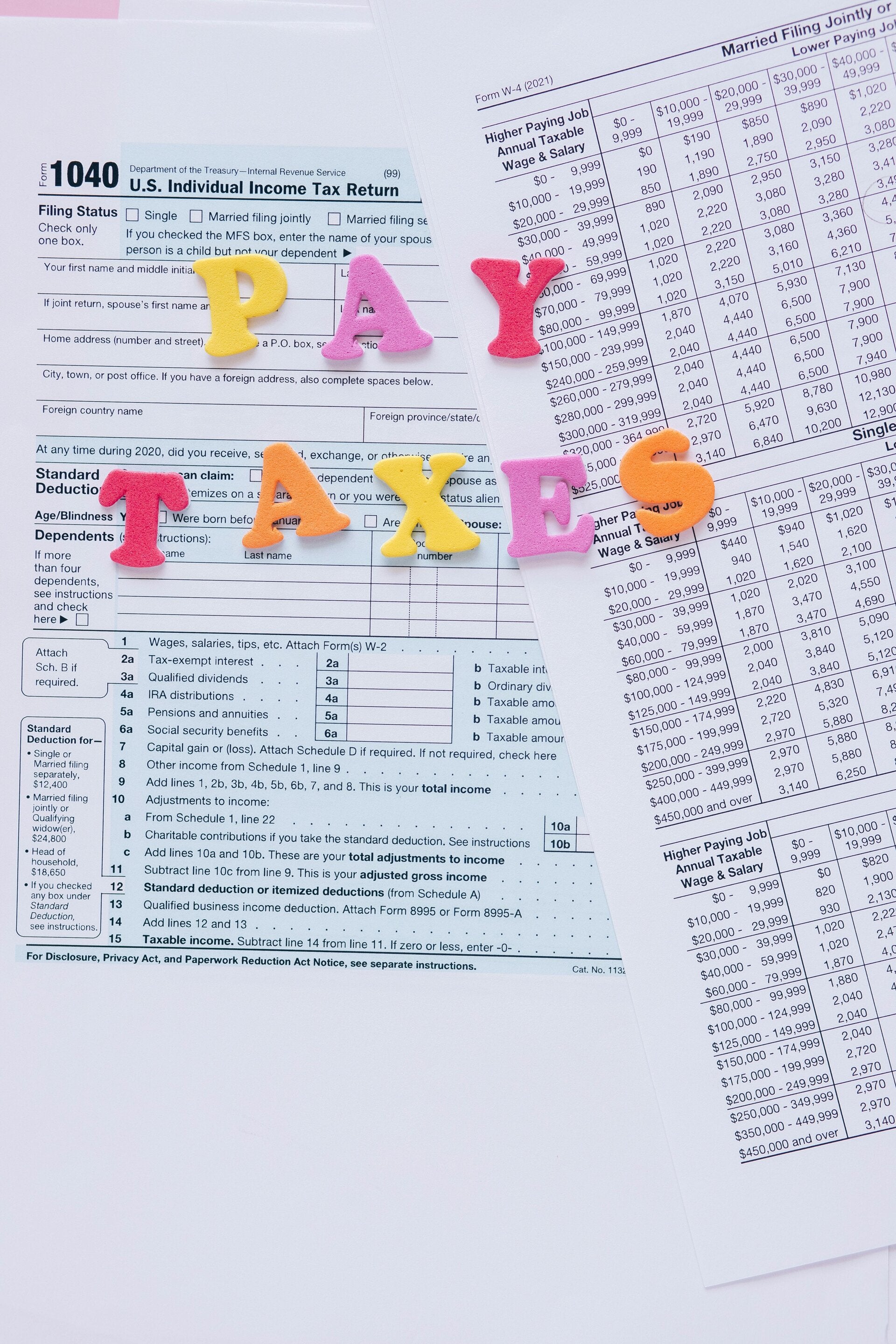INFORMATION

Where’s My Refund?
If you’re wondering about the status of your tax refund, the IRS "Where’s My Refund?" tool is the quickest and most reliable way to get updates. Accessible through IRS.GOV, this tool allows you to track your refund 24/7. All you need is your Social Security number (or Individual Taxpayer Identification Number), your filing status, and the exact amount of your refund. Typically, refund information is updated daily, so if you've recently filed, it may take up to 24 hours after e-filing (or a few weeks for paper returns) to see updates. Visit "Where’s My Refund?" today and get peace of mind about your refund’s progress!

Important Documents to File Your Income Tax Return
Filing your income tax return can seem overwhelming, but staying organized with the right documents can make the process smoother. Here are the key documents you’ll need:
- Personal Information: Your Social Security Number (SSN) or Individual Taxpayer Identification Number (ITIN) is essential. If you're filing jointly, include your spouse's SSN or ITIN as well.
- Income Statements: Gather all W-2 forms from employers and 1099 forms for contract work, self-employment income, or other income sources such as interest, dividends, or government benefits.
- Proof of Deductions: To maximize your deductions, provide receipts or statements for deductible expenses such as mortgage interest, property taxes, medical expenses, charitable contributions, and education expenses (form 1098-T).
- Investment and Bank Records: Include forms like 1099-B for stock sales, 1099-INT for interest, or 1099-DIV for dividends. These documents report taxable income from investments or savings accounts.
- Health Insurance Information: If applicable, provide Form 1095-A, 1095-B, or 1095-C to confirm health insurance coverage, which may impact your tax calculation.
- Childcare and Dependent Information: Include records of childcare expenses, your dependents' SSNs, and any receipts for child or dependent care credits.
- Previous Year Tax Return: Having your prior year’s tax return can help ensure consistency and accuracy in your current filing.
By gathering these documents ahead of time, you’ll be better prepared to file your tax return efficiently and accurately, whether you’re doing it yourself or working with a tax professional.

Understanding Federal Withholdings
Federal withholdings refer to the portion of your income that your employer deducts from your paycheck to cover your federal income tax obligations. This system ensures that taxes are collected incrementally throughout the year, rather than requiring individuals to pay a large sum at tax time. The amount withheld is determined by factors such as your income, filing status, and the information you provide on your Form W-4. Managing federal withholdings carefully can not only help you avoid underpayment penalties but also prevent significant overpayments, ensuring you keep more of your hard-earned money throughout the year.

Do I Have to File My Tax Return?
Whether or not you need to file a tax return depends on several factors, such as your income, filing status, age, and other specific circumstances. Generally speaking, if your income exceeds the IRS's minimum income threshold for your filing status and age, you are required to file. For example, in 2024, a single individual under 65 must file if their gross income is at least $14,600. However, even if you're not required to file, you might want to if you're eligible for a tax refund or credits such as the Earned Income Tax Credit (EITC). It's always smart to check the latest IRS guidelines or consult a tax professional to ensure you're meeting your obligations. Don't leave money on the table or risk penalties—stay informed and proactive about your tax responsibility.

